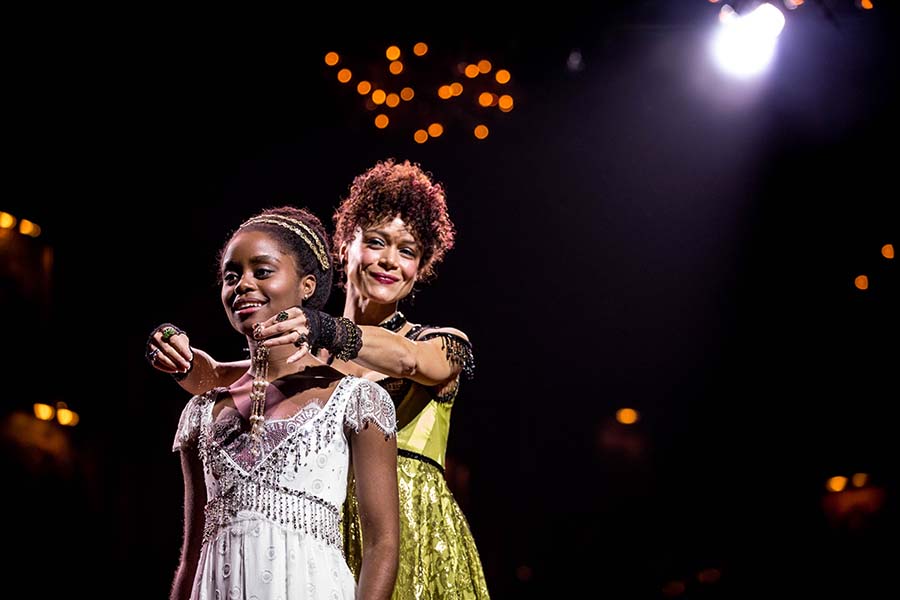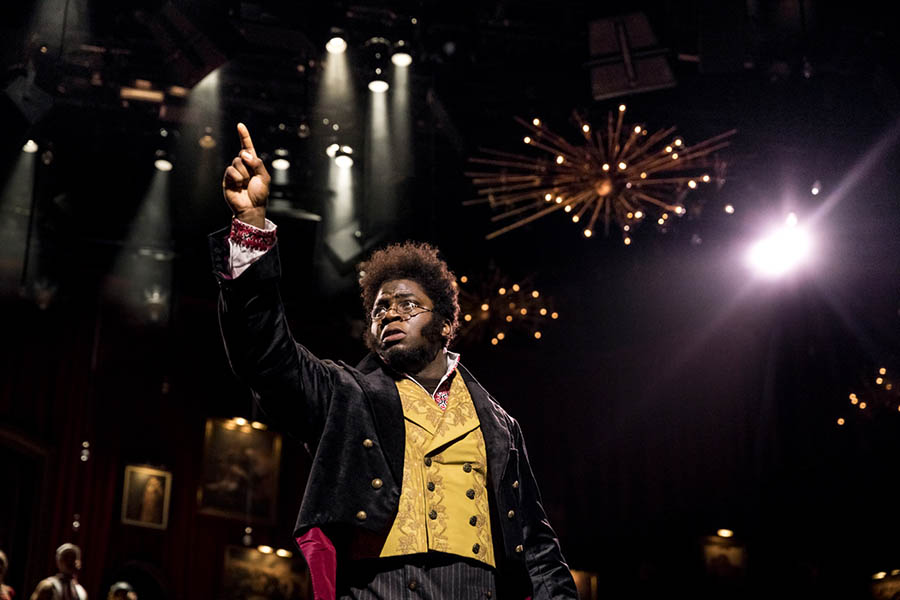It was news that would’ve made any theatre fan weep with joy: Mandy Patinkin was coming back to Broadway. He was to play Pierre in Natasha, Pierre & The Great Comet of 1812. Except there was a snag; He was coming into the show on Aug. 15 for a three-week run. That meant the current Pierre, original Hamilton cast member Okieriete Onaodowan, would have to end his run in the show earlier than expected. Immediately the troubling optics were pointed out.
Broadway Black wrote: “The story of Onaodowan joining the cast with delays followed by the abrupt replacement of his role to boost ticket sales raises questions about how Black actors are valued and supported within Broadway.”
Tony winner Cynthia Erivo tweeted in a thread: “Mandy is a wonderful man, Oak is a wonderful man, this has been handled badly. Ticket sales shouldn’t override a person doing his job.” She then added: “The disrespect of both actors is highly concerning.” Onaodowan wrote on Instagram that even though he could have returned to the show following Patinkin’s departure, he has chosen not to.
Following the backlash, which played out on social media via the hashtag #MakeRoomforOak, the Great Comet producers issued an apology and show creator Dave Malloy explained that the decision was purely monetary (saying on Twitter that sales after “Aug. 13 were catastrophically low. Show would have closed,” adding, “So sorry to have missed the racial optics of it”). Then Patinkin dropped out, releasing a statement on Twitter. The fate of the show is currently in limbo.
If you read my writing, you know that I have no patience for racism, whitewashing, or cultural appropriation. But this time, as I watched the events unfold on my Twitter feed, I was cautious to slap a big racism label on the whole enterprise (save for one admittedly premature tweet). This was more complicated than producers being racist. After all, this was a show in which almost half of the cast are people of color, and where the lead Natasha is played by black actor Denée Benton. The show was even recognized for this, receiving the Extraordinary Excellence in Diversity on Broadway Award from Actors Equity’s National Equal Employment Opportunity Committee. Great Comet closing would be extremely counterproductive to advocates of diversity.
But unfortunately, in the 140-character sphere of Twitter, such nuances were lost, and grays were swept aside for black and white arguments. It was as if there were two factions standing on opposite sides of a ravine, shouting at each other.
It is not to say that those behind the #MakeRoomforOak hashtag were wrong. Actors of color are still underrepresented on Broadway, especially in lead roles, and the loss of even one role is a large blow to representation. And white men are more likely to be produced and represented on Broadway than women or people of color (after all, Lucas Hnath and Joshua Harmon were able to get to Broadway much earlier in the careers than the more accomplished Paula Vogel and Lynn Nottage).
And barring sickness or injury, it is rare for a performer to leave a show before their scheduled departure. Theatre is, after all, a business built on relationships, and trying to change the terms of a contract after the fact compromises those relationships, leading to loss of respect and trust. Though it’s not clear exactly what went down among the producers and the two actors, Onaodowan and Patinkin seem to have been made uncomfortable, even insulted, by the way this transition was handled.
But, and here’s the rub: to immediately decry either “racism” or “PC culture run amok” is to miss the many other issues this incident brings up, which include Broadway’s over-reliance on star casting, lack of regard for actors of color, how Broadway is ill-equipped to support experimental work, producers who prioritize profits over equity, and lack of innovative theatre marketing.
As Erivo pointed out, the problem in this instance was not racism. It was all of these gray areas that cannot be distilled down to 140 characters (I just spent 250 words describing some of that gray and I’m not even done). These issues are bigger than just one show.
Unfortunately, internet outrage is built on broad statements and vilification, which means that any nuances are swept away in favor of ideological purity. Or as this New York Times article puts it: “Anger is the emotion that spreads the most easily over social media. Joy came in a distant second.” Why? “Although we tend to share the happiness only of people we are close to, we are willing to join in the rage of strangers.” Furthermore, “outrage is lavishly rewarded on social media, whether through supportive comments, retweets or Facebook likes.”

That means trying to have a rational conversation online can be about as easy as trying to catch a comet with your bare hands. After all, how can we learn when we are not allowed to make mistakes? How can we build support for equity and diversity when we wave away any concerns with “you don’t get it”? How can we have a conversation when we are too busy accusing each other of ill will? Even now, Erivo and the #MakeRoomforOak supporters are being accused by Great Comet fans of dooming the show.
As Great Comet cast member Azudi Onyejekwe helpfully points out:
The pitchfork mentality of society conjoined with the proliferation of social media continually runs the danger of cutting off true dialogue—and manifests itself into an attack fest where listening to contrary viewpoints is shoved out the window—which is not useful.
Instead, what is useful, according to Onyejekwe, is “by shouting truth to power AND by having a thorough, nuanced analysis of what the superstructures of power were and how to dismantle it from its root.”
Positive changes have come from internet outrage. After all, it was internet activists that forced the New York Gilbert & Sullivan Players to reinvent The Mikado and mount it without yellowface. But there can be a downside to outrage, such as the Public Theater losing Delta Airlines as a funder because of right-wing backlash to Julius Caesar. What separates good outrage from bad outrage? And how are producers supposed to see the difference, especially when it’s hurting their pocketbooks?
We are living in an age of resistance, where every day it seems there is a new battle to be fought, either for healthcare, trans rights, diversity, or all of those at once and more. But in keeping vigilant, we must make sure that we are strategic about which battles we fight, and about what we are fighting for, and about how we are speaking to those who disagree with us. After all, why is a musical that’s the most diverse of this Broadway season a more worthy target than Broadway shows with all–white leads?
To proclaim judgment prematurely shuts down any hope of respectful dialogue. We cannot come to a mutual understanding without a spirit of generosity and empathy (I need to remind myself of this too). To create lasting, systemic changes, we first need to be able to talk to each other. In our increasingly divided society, filled with echo chambers, we need to build our ranks, not cut ourselves off at the pass.
So the next time you see something that angers you, and you’re tempted to fire off a 140-character tweet with a hashtag, I suggest that you take a deep breath, make sure you know all of the facts and are not making a rash judgment, and ask yourself what you are trying to do. If the goal is to publicly shame, then perhaps step away from the keyboard. If it is to have a dialogue and to foster understanding and knowledge, then in the words of a certain Bard, “Play on.”
I guess this is also an entreaty: for producers to be respectful of artists of color and their efforts, and for social media mavens to take a breath before condemning. Then perhaps we can grapple with the complications together and come to an understanding that doesn’t require a backlash or a controversy or a Twitter hashtag.


